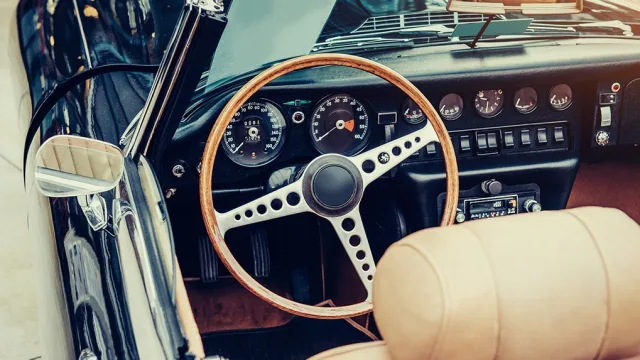Classic cars, as the name suggests, are old cars, usually about twenty-five years old. They are often restored rather than scrapped. Some of them are of historical interest and are considered collectibles. If you are considering buying one of these cars, you need to understand how to make the right choice and know the right things to look for.
Tax exemptions
Classic cars are very popular collectibles. They can be quite expensive, but there are tax exemptions for classic cars that help to make them affordable to own.
Aside from tax exemptions for classic cars, there are also exemptions from MOT tests. Fortunately, the government recognizes that classic cars are part of the heritage of the UK and have made the exemptions a priority.
The government has even announced plans to reinstate a rolling 40-year tax exemption for cars. This is a great deal for early-1980s’modern classics’.
Those in the industry also point to a case in which the IRS took an interest. The case involved antiques and paved the way for depreciation.
To get the full effect of this tax incentive, you must register the car and have the paperwork in place. You will also have to pay a road tax. However, if your car is in good condition and has no mechanical problems, you may qualify for the exemption.
Classification according to state
Classic cars are among the favorite types of vehicles for auto enthusiasts. They can be American or foreign built. Depending on the state, they may have specific requirements for registration. Also, many insurance carriers have special rules for classics. This helps make sure that your car is properly insured and is worth the investment.
Most states consider a vehicle to be classic when it is over 20 years old. Some of these states have additional restrictions, such as having to pass a safety inspection. In addition, a majority of states have certain fees waived when registering a vintage or classic car.
Classic cars can be very similar to antique cars. The main difference is that antiques must be in good working order and in original condition.
Vintage and classic cars are also different in that they can be altered and modified. However, both have to be at least twenty years old. You can find more information about how to classify your car from your local car club.
Insurance
Classic cars require special coverage, and many traditional car insurance providers do not provide it. However, there are a few companies that will. These companies may be able to save you money. Whether you are looking for a single policy or a bundle of insurance, the right provider can make a big difference in your life.
Generally speaking, classic cars are insured in an agreed-upon value. This means that the insurance company has agreed to pay a certain amount to you if the vehicle is damaged, stolen or destroyed.
Insurance for a classic car usually includes collision, comprehensive and uninsured motorist protection. Collision protects your car from accidents, while comprehensive covers it from other vehicles and environmental damage. Depending on your state, you may also be able to choose from additional types of coverage, such as property damage liability.
The best way to find the right insurance for your collector car is to talk with an insurance agent. In addition to obtaining a quote, you should also consider the mileage restrictions and age requirements of the insurer.
Price range
If you are planning to buy a classic car, it is important to get the right price. There are many factors that will influence the value of the car.
Some of the most common variables include make, model, and year. These factors are less significant when judging the condition of a classic vehicle.
You can find a variety of classic cars that fit all budgets. The price range for classic vehicles depends on the age, condition, and rarity of the vehicle.
Classic cars that are newer are usually cheaper than older models. The price also fluctuates on the demand for the type of classic vehicle. To find the perfect model, you can search online and consult a guide.
Several online resources exist for determining the price of a classic vehicle. A third-party appraiser considers the history of the car and the current market trends.
Whether you want to buy a muscle car, sports car, or a vintage convertible, there are plenty of options. Make sure to research the market first.





